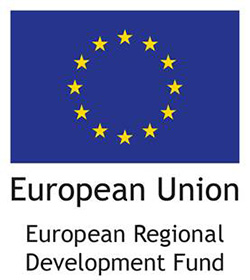iSEE
iSEE-project develops aligned social entrepreneurship education with four partner countries

Funded by: Central Baltic Programme
Time period: 2020-2022
Project members: KTH Royal Institute of Technology, LAB University of Applied Sciences, University of Tartu, Riga Technical University
Project contact persons:
Project Manager Heidi Myyryläinen,
LAB University of Applied Sciences
E-mail:
heidi.myyrylainen@lab.fi
Background
In the EU, the involvement in social entrepreneurship (SE) is at a low level with less than 1% of the business population undertaking such activities. In view of the current societal developments, with public agencies providing fewer social services of general interest, non-profit organisations are diversifying income sources and mainstream enterprises are showing more interest in social innovation. There is a need to take heed of this in order to align their entrepreneurship education with work life, develop SE education and enhance it collaboratively with companies.
Aim and objectives
The main objective of the iSEE project is to innovate aligned professional, higher education in social entrepreneurship in Degree Programmes in four Central Baltic area countries. In European Union area one out of four new enterprises set-up every year are social enterprises. However, the role and the concept of social enterprise is different across EU countries. The project views social enterprises broadly in line with the European Commission´s term “social enterprise” covering the businesses having societal objective of the common good as a reason for the commercial activity or those, whose profits are mainly reinvested to achieve social objectives or those where the method of organization or the ownership systems reflect the enterprises mission, using democratic or participatory principles or focusing on social justice.
In the project, LAB University of Applied, University of Tartu, Riga Technical University and KTH Royal Institute of Technology carry out surveys and case studies in each country. The project partner universities share experiences and know-how among partners. The project has associate partners from each country, Finnish Association for Social Enterprises, Social Enterprise Estonia, Social Entrepreneurship Forum and Ministry of welfare of the Republic of Latvia. The knowledge gained in surveys and case studies will be used when partners co-create new practice-based learning materials. During the project, the partner institutions launch and test new courses for bachelor´s degree students and for companies. The aligned social entrepreneurship curriculum covers courses with altogether minimum 10 ECTS credits and they will be accessible to business students in all four partner universities. The curricula will include e-learning courses, too.
